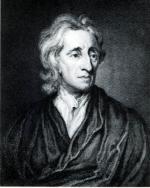|
This section contains 6,400 words (approx. 22 pages at 300 words per page) |

|
Dictionary of Literary Biography on John Locke
John Locke is heralded as one of the most prominent British philosophers and men of letters. His most important philosophical work, An Essay concerning Humane Understanding: In Four Books (1689), had a profound influence on eighteenth-century thought and on the subsequent development of British empiricism. John Stuart Mill voiced what is still a widespread scholarly opinion when he pronounced Locke the "unquestioned founder of the analytic philosophy of mind." Locke's purpose in this work was to remove some of the "rubbish" standing in the way of knowledge, but he is widely viewed as achieving much more, for he laid the theoretical groundwork for new experimental methods in science. Locke's importance in the history of Western thought rests no less on his political work, Two Treatises of Government: In the Former, The False Principles and Foundation of Sir Robert Filmer, and His Followers, are Detected and Overthrown. The Latter is...
|
This section contains 6,400 words (approx. 22 pages at 300 words per page) |

|


